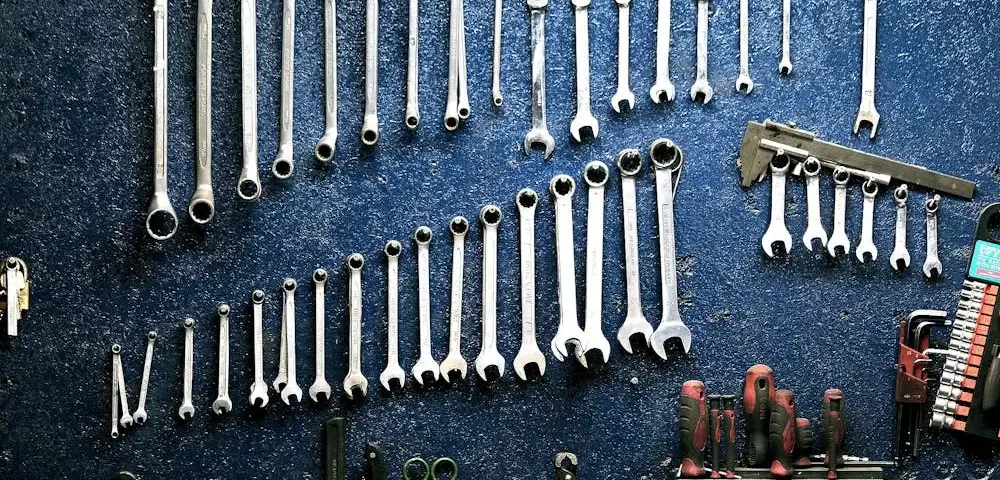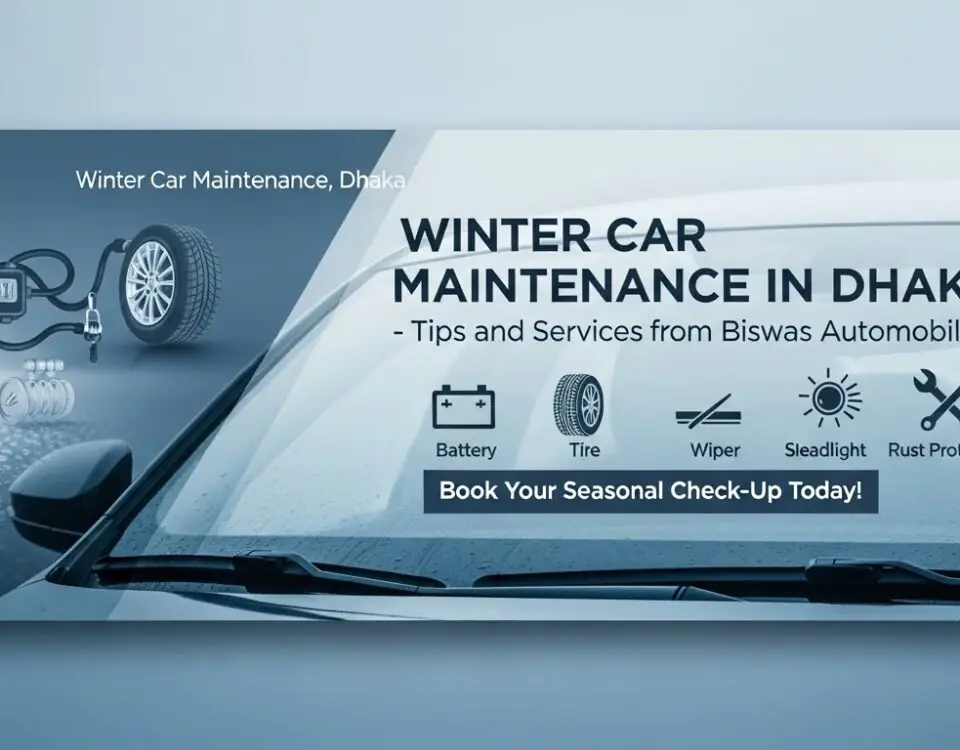
Best Honda Car Service Center in Bangladesh
February 8, 2025
What Happens When You Drive on Bad Alignment?
February 25, 2025How Regular Maintenance Can Extend The Life Of Your Car?
Owning a car is an investment, and just like any other valuable asset, it requires proper care to ensure it lasts. Regular maintenance extends your car’s lifespan and prevents costly repairs. By staying on top of basic tasks like oil changes, tire checks, and brake inspections, you can keep your car running smoothly and safely. In this post, we’ll explore how routine maintenance helps maximize your vehicle’s performance and longevity.
Importance of Regular Car Maintenance
Regular car maintenance is essential for keeping your vehicle in good working condition. It helps prevent breakdowns, improves safety, and ensures better performance. Neglecting basic maintenance tasks can lead to expensive repairs and shorten your car’s lifespan. By performing routine checks, such as oil changes, tire rotations, and brake inspections, you can catch potential issues early, save money, and enjoy a smoother, more reliable driving experience.
What is Regular Car Maintenance?
Scheduled car maintenance involves vital tasks to keep your vehicle running smoothly. This includes changing the oil, rotating the tires, checking and topping off fluid levels, and inspecting key components like the brakes, battery, and air filters. Regular checks help prevent major issues, improve performance, and ensure safety. Staying on top of these basic maintenance tasks can extend your car’s lifespan and save you money on costly repairs.
Why is Regular Maintenance Important?
Without regular upkeep, small problems can turn into big, costly repairs. For example, if you don’t change your oil regularly, it can cause your engine to overheat or even fail. Regular upkeep ensures that essential components, like brakes and tires, function properly, improving safety and performance. By staying on top of maintenance tasks, you can avoid major breakdowns, extend the life of your car, and save money in the long run.
Benefits of Regular Maintenance
By sticking to a maintenance routine, your car can perform better, last longer, and require fewer repairs. Some of the benefits include:
- Better engine performance
- Increased fuel efficiency
- Lower emissions
- Higher resale value
- Improved safety (through regular brake, tire, and fluid checks)
- Reduced risk of unexpected breakdowns
- Smoother driving experience
- Enhanced driving comfort
- Longer-lasting tires
- Avoidance of costly major repairs
- Maintaining manufacturer warranties
- Greater overall reliability
Regular maintenance is key to keeping your car running smoothly, saving you money, and ensuring safety on the road.
Maintenance Tasks Extend Your Car’s Life
- Oil and Filter Changes
One of the most important maintenance tasks is changing your oil. Over time, oil breaks down and becomes less effective at lubricating the engine. Oil changes prevent engine wear and overheating, keeping your car running smoothly.
- Tire Maintenance
Checking tire pressure, rotating your tires, and getting them aligned regularly helps prevent uneven wear. This not only improves your safety on the road but also saves you from buying new tires too soon. Proper tire care helps your car drive more smoothly and saves fuel.
Brakes are critical for your safety. Regular checks ensure the pads are in good condition and that the brake fluid is at the right level. This helps avoid accidents and costly brake replacements later on.
- Battery Care
Your car’s battery powers many essential systems, and it can wear out over time. By checking the battery regularly and keeping the terminals clean, you can avoid sudden breakdowns and extend the life of your battery.
- Fluid Levels
Keeping an eye on the fluid levels in your car—such as coolant, transmission fluid, and brake fluid—is crucial. These fluids keep the engine cool, help with smooth gear shifting, and ensure proper brake function. Low or dirty fluids can cause serious damage, so regular checks are vital.
Replacing the air filter and spark plugs at regular intervals ensures your engine runs efficiently. Dirty air filters can lower your car’s fuel efficiency, while worn-out spark plugs can cause engine misfires.
By staying on top of routine maintenance, you can enjoy a reliable car for years to come, avoiding costly repairs and ensuring your vehicle performs at its best. Biswas Automobiles offer comprehensive services to keep your car in top condition. From regular oil changes to brake inspections, our expert team is here to help!
Don’t wait for issues to arise—schedule your maintenance today and drive with confidence! Contact Biswas Automobiles now to book your appointment!
How Regular Maintenance Can Save You Money in the Long Run?
Minor Repairs vs. Major Overhaul
Taking care of your car with routine maintenance can prevent small issues from turning into expensive repairs. For instance, replacing brake pads is much cheaper than dealing with damaged rotors caused by neglect.
Preventative Maintenance Saves Money
Regular maintenance is a cost-effective way to avoid large repair bills. It’s far cheaper to replace a worn-out part like a tire than to repair a car that’s broken down because it wasn’t maintained.
Higher Resale Value
When you take good care of your car, it shows. A well-maintained car will have a higher resale value than one that’s been neglected. Keeping records of your maintenance also helps buyers trust that the car is in good shape.
How Often Should You Perform Maintenance?
It’s important to follow your car’s specific maintenance schedule. Here are some general guidelines:
- Oil changes: Every 3,000-5,000 miles, depending on the type of oil.
- Tire rotations: Every 6,000 miles.
- Brake checks: Every 12,000 miles or as needed.
Signs That Your Car Might Need Immediate Attention
Sometimes, despite regular maintenance, your car might show signs that something’s wrong. Here are a few things to watch out for:
- Unusual Noises: If you hear grinding or squeaking sounds from the brakes or engine, it’s time to check things out.
- Warning Lights: The dashboard warning lights, such as the check engine light or low oil light, should never be ignored.
- Strange Smells: Burning smells or coolant odors can indicate an issue with the engine or cooling system.
- Vibrations or Handling Issues: If your car shakes or handles poorly, it’s important to get it checked immediately.
Conclusion
In conclusion, regular maintenance is the key to keeping your car running smoothly and extending its lifespan. By sticking to a simple maintenance schedule, you can avoid expensive repairs, improve your car’s performance, and keep it in great shape for years to come. So, take action today, check your car’s maintenance schedule, and keep your vehicle running at its best! By following these easy tips and making maintenance a priority, you’ll enjoy a reliable car that will last much longer. It’s a small investment now for big savings and peace of mind in the future.
FAQ
How to extend the lifespan of a car?
To extend your car’s lifespan, follow a regular maintenance schedule, check fluid levels, change the oil frequently, rotate tires, and keep an eye on the brakes. Avoid harsh driving habits and take care of minor issues before they turn into major repairs.
How to increase the life of a car?
Regular maintenance, such as oil changes, tire rotations, and brake inspections, will help increase your car’s life. Keep the car clean, drive smoothly, and address any mechanical issues early to prevent further damage. Proper storage and avoiding extreme temperatures also help.
What does regular maintenance mean for a car?
Regular maintenance means routinely checking and servicing your car to ensure all components work properly. This includes changing oil, checking tire pressure, replacing air filters, inspecting brakes, and ensuring fluids like coolant and transmission fluid are at the correct levels.
Why is routine maintenance important?
Routine maintenance is important because it helps prevent costly repairs, improves the car’s performance, and keeps the vehicle running efficiently. Regular checks can detect issues early, reducing the risk of breakdowns and extending the car’s lifespan.
What is the most basic maintenance for a car?
The most basic maintenance for a car includes changing the oil, rotating the tires, checking tire pressure, replacing air filters, and ensuring that fluids like coolant and brake fluid are at the proper levels. Regular brake and battery checks are also essential.
How can I prolong my engine life?
To prolong your engine life, change the oil regularly, use the correct oil grade, and keep the engine cool by maintaining the cooling system. Avoid overloading the car, drive smoothly, and ensure the air filters are clean. Also, don’t let the engine idle for too long.
What is the maximum life of a car?
The maximum life of a car depends on the make and model, but with proper care and maintenance, most cars can last between 150,000 to 300,000 miles. Regular upkeep, like oil changes and tire maintenance, can help achieve this.
What is a good life for a car?
A good life for a car typically ranges from 150,000 to 200,000 miles with proper maintenance. The car’s life depends on driving habits, environment, and the frequency of maintenance. Regular care helps ensure it lasts longer without major issues.
How can I boost my dead car?
To boost a dead car, first check the battery and replace it if necessary. If the battery is fine, check for any other issues like a blown fuse or faulty starter. If you still can’t start it, have the vehicle towed to a mechanic for further diagnostics.


